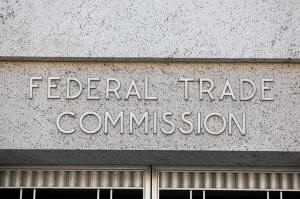US FTC issues warning to franchisors over unfair business practices
 Send a link to a friend
Send a link to a friend
 [July 13, 2024] By
Waylon Cunningham [July 13, 2024] By
Waylon Cunningham
(Reuters) - A U.S. trade regulator on Friday announced a suite of
actions taking aim at "unfair and deceptive practices" it said are
illegally imposed on U.S. franchisees by their brand owners, such as
requiring new fees not outlined in franchise contracts, or using
contract provisions to discourage franchisees from speaking with
regulators.
The U.S. Federal Trade Commission's declaration that these practices are
illegal did not name any specific companies as being in violation of the
law, but in doing so it took a stance on issues that have inflamed
tensions in recent years between companies and operators at major brands
like McDonald's and Subway.
"Franchising is a chance for Americans to build a business," said FTC
Chair Lina Khan in a statement. "But the FTC has heard concerns about
how unfair franchisor practices, like a failure to fully disclose fees
upfront, go unreported thanks to a fear of retaliation."
The International Franchise Association, a trade group that speaks on
behalf of franchising companies, criticized the FTC's actions on Friday
as "contrary to the reality that the vast majority (of) franchise
relationships are working and that franchising continues to grow each
year."

Among the actions taken by the FTC was issuing a policy statement
warning brand owners that it is illegal to discourage franchisees from
speaking with regulators about unfair practices or potential law
violations through non-disparagement contract clauses, or any threat of
retaliation.
Relatedly, the agency said it was soliciting a new round of comments
from franchisees, brand owners and other stakeholders.
The agency also released new guidance that prohibits "undisclosed junk
fees" -- echoing language used to describe hidden fees imposed on
consumers -- that brand owners charge to franchisees, but which are not
outlined in franchise contracts. As an example, the FTC said brand
owners sometimes introduced these costs through on-the-fly changes to
the operating manual, a sort of rulebook that franchisee owners must
abide by to stay in compliance with their brand owners.
[to top of second column] |

Signage is seen at the Federal Trade Commission headquarters in
Washington, D.C., U.S., August 29, 2020. REUTERS/Andrew Kelly/File
Photo

In response to a request for public comments on franchisor business
practices last year, the agency received 5,200 comments, including
some from McDonald's franchisees.
The National Owners Association, comprised of several hundred
McDonald's franchisees, said in its comment that "the current
climate is dictatorial and there is zero room for negotiation" with
McDonald's. The burger chain unilaterally imposes new costs on
franchise owners by making changes to the McDonald's operating
manual, then uses non-disparagement clauses to silence critics, said
the franchisee advocacy group, which formed in 2018.
Asked for comment, McDonald's referred Reuters to the International
Franchise Association's statement.
The FTC said the number of franchise-related complaints submitted to
the agency had increased significantly over the past three years,
citing an analysis by the U.S. Government Accountability Office
published last year.
"Today the Commission is making clear that contractual terms
prohibiting franchisees from reporting potential law violations to
the government are unfair, unenforceable, and illegal," the FTC
statement said.
(Reporting by Waylon Cunningham and Ismail Shakil; editing by Rami
Ayyub and Rosalba O'Brien)
[© 2024 Thomson Reuters. All rights
reserved.]
This material may not be published,
broadcast, rewritten or redistributed.
Thompson Reuters is solely responsible for this content.
 |